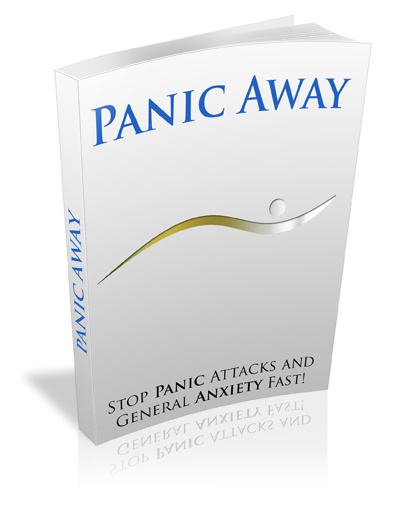Have you ever had a moment when all your worries and anxieties seemed to melt away as you listened to your favorite song? The lyrics resonated with your emotions, the melody transported you to a place of calm, and for those fleeting minutes, everything felt okay. I've experienced that too, and it got me thinking about the incredible power of music to soothe our anxious minds.
Anxiety disorders can be overwhelming, leaving us feeling trapped in a cycle of fear and worry. But what if there was a way to break free from that cycle? Music therapy offers a glimmer of hope, providing evidence-based interventions that can help ease anxiety and promote emotional well-being.
Our Top Pick For Beating Panic Attacks

Stopping, and preventing, panic attacks is now even easier.
Imagine being able to find relief from your anxiety through the power of music. Imagine having techniques at your disposal that can help you manage your symptoms and regain control over your life. With music therapy, these possibilities become a reality.
In this guide, we will explore the benefits of music therapy for anxiety, delve into the different techniques used in music therapy interventions, and provide practical tips on how you can incorporate music into your own anxiety management strategies. Together, let's discover the transformative potential of music in easing anxiety disorders.
Key Takeaways:
- Music therapy interventions offer a powerful tool for easing anxiety disorders.
- Music has the ability to soothe our anxious minds and promote emotional well-being.
- Music therapy techniques can help individuals manage anxiety symptoms and regain control over their lives.
- By incorporating music into their anxiety management strategies, individuals can experience transformative benefits.
- In this guide, we will explore the benefits of music therapy for anxiety and provide practical tips on how to incorporate music into your own anxiety management.
Understanding Anxiety Disorders
Anxiety disorders are a common mental health concern that affects many individuals. People with anxiety disorders experience excessive and persistent worry, fear, and apprehension, which can interfere with daily activities and impact overall well-being.
Several types of anxiety disorders exist, each with its own unique symptoms and diagnostic criteria. Generalized Anxiety Disorder (GAD) is characterized by constant worry and uncontrollable fears about everyday situations. Social Anxiety Disorder involves intense fear and self-consciousness in social situations, while Panic Disorder is marked by recurring panic attacks that cause physical symptoms such as a racing heart and shortness of breath. Specific Phobias are intense fears of specific objects or situations, such as heights or spiders.
To effectively manage and overcome anxiety disorders, it is crucial to seek professional help. Qualified healthcare professionals can provide accurate diagnosis and develop personalized treatment plans that may include therapy, medication, or a combination of both. Managing anxiety disorders is a journey that requires patience, support, and the implementation of healthy coping mechanisms.
One effective approach to managing anxiety disorders is through music therapy, which offers a unique and evidence-based method to alleviate symptoms and promote emotional well-being. By understanding anxiety disorders and seeking appropriate help, individuals can take an important step towards better mental health.
| Anxiety Disorder | Key Features |
|---|---|
| Generalized Anxiety Disorder (GAD) | Excessive worry and fear about everyday situations |
| Social Anxiety Disorder | Intense fear and self-consciousness in social situations |
| Panic Disorder | Recurring panic attacks accompanied by physical symptoms |
| Specific Phobias | Intense fears of specific objects or situations |
Overview of Music Therapy for Anxiety
Music therapy is an evidence-based approach used to alleviate anxiety symptoms and promote emotional well-being. The impact of music on the brain is profound, as it has the ability to reduce stress, promote relaxation, and improve mood. Music therapy for anxiety incorporates various techniques and interventions that are tailored to the individual's needs, aiming to alleviate anxiety symptoms and enhance emotional regulation. These techniques may include:
- Relaxation techniques: Utilizing calming music and deep breathing exercises to promote a sense of relaxation.
- Improvisation and expressive techniques: Allowing individuals to spontaneously create music as a means of emotional release and self-expression.
- Guided imagery: Using carefully selected music to guide individuals through visualizations, helping them relax and reduce anxiety.
- Music-assisted relaxation: Engaging with music to promote a state of calm and relaxation, aiding in anxiety management.
Music therapy offers a unique and effective way for individuals to actively engage with music and experience its therapeutic benefits. Through active participation, individuals can find a sense of calm, enhance emotional regulation, and develop effective strategies for managing anxiety.

Music and the Brain: How Music Affects Anxiety
Music has a profound impact on our emotions, thoughts, and overall well-being, including anxiety. When we listen to music, it triggers various regions of the brain, particularly the limbic system.
The limbic system plays a crucial role in regulating emotions, and its activation can lead to the release of neurotransmitters such as dopamine, serotonin, and endorphins. These neurotransmitters are associated with pleasure, mood regulation, and stress reduction, all of which have a direct impact on anxiety levels.
Furthermore, music also engages the prefrontal cortex, a region of the brain involved in cognitive processes such as attention and decision-making. By stimulating the prefrontal cortex, music can help divert our focus away from anxious thoughts and promote a sense of calm and relaxation.
This image illustrates the impact of music on the brain, highlighting the areas that are particularly affected during the listening process. Through its influence on the limbic system and the prefrontal cortex, music has the potential to positively influence our emotional state and provide relief from anxiety.
Music Therapy Techniques for Anxiety Management
When it comes to managing anxiety, music therapy offers a range of techniques that can provide relief and support. These techniques encompass a variety of approaches, including relaxation techniques, improvisation and expressive techniques, guided imagery and music, and more. By incorporating these techniques into therapy sessions, individuals can experience emotional release, empowerment, social interaction, and cognitive-behavioral therapy.
Relaxation techniques: Playing calming music and engaging in deep breathing exercises can help induce a state of relaxation and reduce anxiety symptoms. This technique allows individuals to focus on the soothing sounds of music and control their breath, promoting a sense of calm.
Improvisation and expressive techniques: This technique allows individuals to spontaneously create music as a means of emotional release. Through improvisation, individuals can express their innermost feelings and thoughts, allowing for cathartic experiences and a sense of empowerment.
Guided imagery and music: With this technique, individuals listen to carefully selected music while being guided through visualizations by a trained music therapist. This approach can stimulate imagery-based experiences, enhancing relaxation, emotional regulation, and coping skills.
Music therapy techniques for anxiety management can be integrated with other therapeutic approaches, such as cognitive-behavioral therapy and mindfulness-based techniques, to enhance overall effectiveness. By combining these techniques, individuals can develop a personalized treatment plan that supports their emotional well-being and empowers them to manage anxiety more effectively.
Benefits of Music Therapy for Anxiety
Music therapy for anxiety offers a range of benefits to individuals. When it comes to reducing anxiety symptoms, music has been proven to be an effective tool in alleviating excessive worry and fear.
One of the key advantages of music therapy is its impact on emotional regulation and stress management. Engaging in music therapy provides a safe and supportive environment for expression and emotional release, allowing individuals to effectively manage their emotions and reduce stress levels.
Moreover, music therapy can play a significant role in improving coping skills. By actively engaging with music, individuals develop effective strategies to manage and cope with their anxiety. Music becomes a source of support, helping them navigate through challenging situations.
In addition to coping skills, music therapy offers emotional healing and catharsis. Through music, individuals can freely express their emotions and find solace in the healing power of music. Music therapy serves as a medium for self-expression, allowing individuals to process and release anxious thoughts and feelings.
Furthermore, music therapy promotes social interaction. Group music therapy sessions provide an opportunity for individuals with anxiety to connect with others who share similar experiences. Engaging in music-making activities together fosters a sense of belonging and community.
Key Benefits of Music Therapy for Anxiety:
- Reduction of anxiety symptoms: Music therapy alleviates excessive worry and fear
- Emotional regulation: Music therapy provides a safe environment for emotional expression and release
- Stress management: Music therapy helps individuals effectively manage and reduce stress levels
- Improved coping skills: Active engagement with music strengthens coping strategies
- Emotional healing and catharsis: Music therapy serves as a means of self-expression and processing emotions
- Social interaction: Group music therapy sessions facilitate connection and a sense of community
Incorporating music therapy into anxiety treatment plans can have profound and positive effects on individuals' overall well-being. By harnessing the therapeutic benefits of music, individuals can find relief from anxiety, enhance emotional well-being, and cultivate a deeper sense of self-expression and social interaction.

Incorporating Music Therapy into Anxiety Treatment
To effectively incorporate music therapy into anxiety treatment, it is crucial to seek the guidance of a qualified music therapist who specializes in working with anxiety disorders. A skilled music therapist will conduct an initial assessment to understand your specific needs and develop a personalized treatment plan tailored to your unique circumstances. This personalized approach ensures that the therapy addresses your specific anxiety symptoms and promotes emotional well-being.
Incorporating music therapy into anxiety treatment can be done in conjunction with other evidence-based therapeutic approaches, such as cognitive-behavioral therapy or mindfulness-based techniques. This integration enhances the overall effectiveness of the treatment, providing you with a comprehensive approach to managing your anxiety.
Additionally, you can incorporate music therapy techniques into your everyday life as part of your self-care practices. Engaging in activities like listening to calming music or participating in music-based relaxation exercises can provide a sense of relief and support your overall well-being, helping to alleviate anxiety symptoms and enhance your quality of life.
In summary, integrating music therapy into anxiety treatment involves finding a qualified music therapist, developing a personalized treatment plan, and incorporating music therapy techniques alongside other evidence-based therapies. By doing so, you can enhance the overall effectiveness of your treatment and incorporate self-care practices that provide ongoing support for your anxiety management.
How to Use Music When You Are Anxious
When feeling anxious, music can be a powerful tool to help find relief and relaxation. Creating a personal playlist tailored to your current mood can guide you through a gradual shift towards a more relaxed state. It's important to choose music that resonates with your personal preferences, as different genres and styles can have varying effects on individuals.
By selecting songs or pieces that align with your inner feelings, you can use music as a means of emotional release and discover a sense of calm and relaxation. Whether it's soothing melodies, uplifting beats, or introspective lyrics, the right music can serve as a comforting companion during moments of anxiety.
“Music gives a soul to the universe, wings to the mind, flight to the imagination, and life to everything.” – Plato
Music has the power to touch our souls and connect us with our deepest emotions. When anxiety strikes, allow yourself to be immersed in the melodies and rhythms that resonate with you. Let the music become your outlet for expression and the catalyst for inner peace.
Creating Your Personal Playlist
To create a personal playlist for anxiety relief, consider the following steps:
- Reflect on your current emotions and how you'd like to feel. Are you seeking calmness, empowerment, or distraction?
- Identify genres or artists that evoke those desired emotions. Experiment with different styles of music to find what resonates with you.
- Choose songs that have personal significance and bring a sense of comfort or joy.
- Consider instrumental tracks that allow you to focus solely on the music, immersing yourself in its calming power.
- Include songs with affirming lyrics or uplifting messages that can inspire and empower you.
Your personal playlist should be a collection of songs that provide a positive emotional experience and help you find a sense of calm amidst anxiety. Use it as a tool to guide you through challenging moments and promote relaxation.
Remember, everyone's musical preferences are unique, so create a playlist that reflects your individual tastes and inner world. Let the music become a sanctuary where you can find solace, release, and healing.
The Healing Power of Music Therapy
Music therapy has shown remarkable healing effects in the treatment and management of anxiety disorders, contributing to emotional well-being, a sense of solace, and enhanced coping skills. By incorporating music into therapeutic interventions, individuals can experience a range of benefits that positively impact their overall mental health.
Music therapy offers a unique and powerful approach to anxiety treatment, providing individuals with a safe and supportive environment to explore their emotions and develop effective coping strategies. Through active engagement with music, individuals can find solace and experience a sense of emotional well-being.
Music has the ability to evoke deeply rooted emotions and create a state of relaxation, helping individuals manage anxious thoughts and find comfort. This therapeutic approach allows individuals to express themselves and process their emotions in a non-verbal way, providing a unique avenue for emotional release and self-expression.
Furthermore, music therapy sessions often involve social interaction, which can help individuals build connections and develop a support system. Engaging in music-making as a group promotes a sense of belonging and can foster a positive and uplifting environment.
The incorporation of music therapy techniques, such as relaxation exercises and guided imagery, can assist individuals in managing anxiety symptoms effectively. These techniques promote calmness, reduce stress, and allow for the development of effective coping mechanisms.
Benefits of Music Therapy for Anxiety:
- Reduction of anxiety symptoms
- Enhancement of emotional well-being and regulation
- Promotion of relaxation and stress reduction
- Development of effective coping skills
- Facilitation of emotional healing and self-expression
Incorporating music therapy into anxiety treatment has the potential to significantly contribute to the well-being of individuals struggling with anxiety disorders. By harnessing the healing power of music, individuals can find solace, develop coping skills, and experience emotional well-being in their journey towards managing and overcoming anxiety.

Comparative Overview of Music Therapy Approaches for Anxiety
| Music Therapy Approach | Techniques Used | Benefits |
|---|---|---|
| Relaxation Techniques | Calming music, deep breathing exercises | Stress reduction, promoting relaxation, enhancing emotional regulation |
| Improvisation and Expressive Techniques | Spontaneous creation of music as emotional release | Promotes emotional healing, self-expression, and empowerment |
| Guided Imagery and Music | Carefully selected music with guided visualizations | Facilitates emotional release, supports relaxation, and enhances coping skills |
Music therapy offers a holistic and integrative approach that complements other therapeutic modalities in treating anxiety disorders. Whether used in a professional setting or as part of self-care practices, music therapy has the potential to support individuals in their journey towards emotional well-being and better management of anxiety.
Conclusion
In conclusion, music therapy interventions are an effective and evidence-based approach to ease anxiety disorders. The power of music to positively impact the brain cannot be underestimated. Music has been shown to reduce stress, promote relaxation, and enhance mood. Through various music therapy techniques, such as relaxation techniques, improvisation and expressive techniques, and guided imagery and music, individuals can effectively manage their anxiety symptoms, develop emotional regulation skills, and cultivate effective coping mechanisms.
Integration of music therapy with other therapeutic approaches can further enhance the overall effectiveness of treatment for anxiety disorders. By combining music therapy with techniques from cognitive-behavioral therapy or mindfulness-based approaches, individuals can benefit from a holistic and comprehensive treatment plan. This integration allows for a personalized and tailored approach to addressing anxiety symptoms and promoting emotional well-being.
Music therapy is not limited to professional settings; it can also be incorporated into self-care practices. Whether it be actively engaging with calming music, creating personal playlists, or using music as a tool for relaxation, individuals can harness the power of music to manage their anxiety and support their emotional well-being.
Ultimately, music therapy offers a unique and powerful tool for managing anxiety and promoting emotional well-being. Its evidence-based approach, coupled with the profound impact of music on the brain, makes it a valuable resource for individuals seeking relief from anxiety disorders. By embracing music therapy, individuals can find solace, develop effective coping skills, and improve their overall quality of life.
FAQ
What is music therapy?
Music therapy is an evidence-based approach that uses music and musical interventions to address the specific needs of individuals with anxiety disorders. It involves techniques such as relaxation techniques, improvisation and expressive techniques, guided imagery, and music-assisted relaxation.
How does music therapy help with anxiety?
Music has a profound impact on the brain, reducing stress, promoting relaxation, and improving mood. Music therapy techniques can foster relaxation, enhance emotional regulation, improve coping skills, facilitate social interaction, and be integrated with other therapeutic approaches like cognitive-behavioral therapy or mindfulness-based techniques.
Can music therapy reduce anxiety symptoms?
Yes, music therapy has shown great potential in reducing anxiety symptoms by alleviating excessive worry and fear, promoting emotional regulation, improving coping skills, and facilitating emotional healing and catharsis.
How can music therapy be incorporated into anxiety treatment?
It is important to find a qualified music therapist who specializes in working with anxiety disorders. They can assess the individual's specific needs and develop a personalized treatment plan. Integrating music therapy with other therapeutic approaches can enhance the overall effectiveness of treatment. Individuals can also incorporate music therapy techniques into their daily lives as part of self-care practices.
How can I use music to calm my anxiety?
Creating a personal playlist with songs that match your current mood can guide you through a gradual shift towards a more relaxed state. It is important to use music that resonates with your personal preferences, as different genres and styles can have varying effects on individuals.
What are the benefits of music therapy for anxiety?
Music therapy offers a range of benefits, including the reduction of anxiety symptoms, emotional regulation and stress management, improved coping skills, and emotional healing and catharsis through self-expression and social interaction.
How can music therapy contribute to the treatment and management of anxiety disorders?
By incorporating music into therapeutic interventions, music therapy can provide a unique and powerful approach to anxiety treatment. It allows individuals to find solace, develop coping skills, and experience a sense of emotional well-being.



